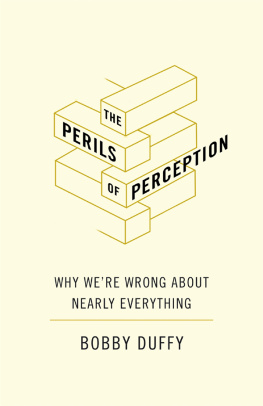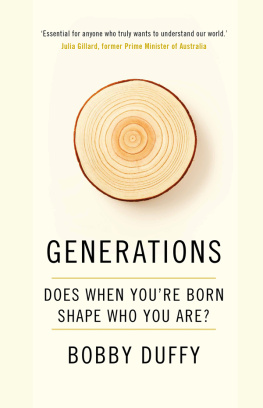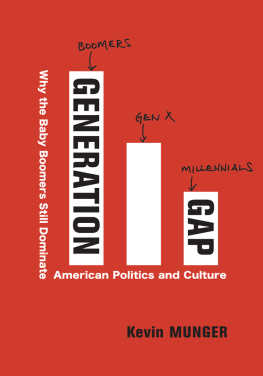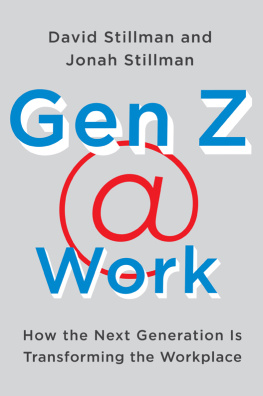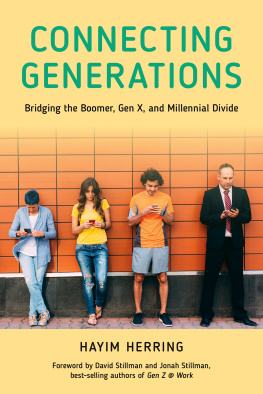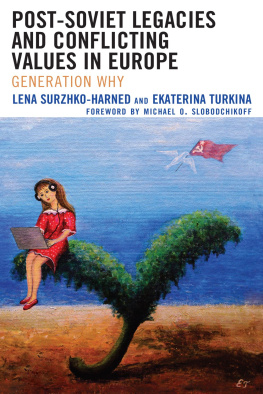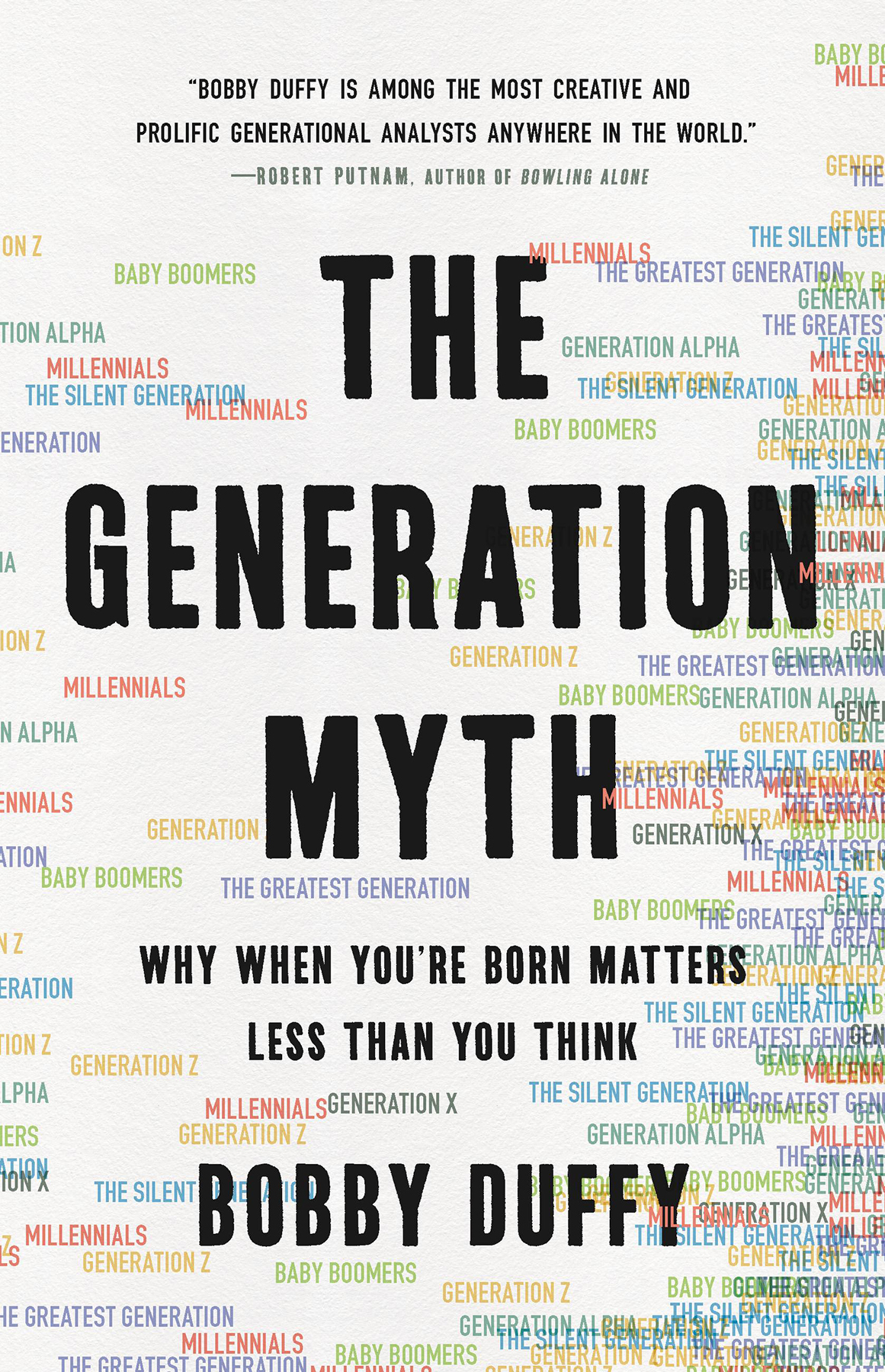
Copyright 2021 by Bobby Duffy
Cover design by Ann Kirchner
Cover image Vadimzosimov / Shutterstock.com
Cover copyright 2021 by Hachette Book Group, Inc.
Hachette Book Group supports the right to free expression and the value of copyright. The purpose of copyright is to encourage writers and artists to produce the creative works that enrich our culture.
The scanning, uploading, and distribution of this book without permission is a theft of the authors intellectual property. If you would like permission to use material from the book (other than for review purposes), please contact permissions@hbgusa.com. Thank you for your support of the authors rights.
Basic Books
Hachette Book Group
1290 Avenue of the Americas, New York, NY 10104
www.basicbooks.com
First US Edition: October 2021
Published by Basic Books, an imprint of Perseus Books, LLC, a subsidiary of Hachette Book Group, Inc. The Basic Books name and logo is a trademark of the Hachette Book Group.
The Hachette Speakers Bureau provides a wide range of authors for speaking events. To find out more, go to www.hachettespeakersbureau.com or call (866) 376-6591.
The publisher is not responsible for websites (or their content) that are not owned by the publisher.
Library of Congress Cataloging-in-Publication Data
Names: Duffy, Bobby, author.
Title: The generation myth : why when youre born matters less than you think / Bobby Duffy.
Description: First edition. | New York, NY : Basic Books, [2021] | Includes bibliographical references and index.
Identifiers: LCCN 2021015650 | ISBN 9781541620315 (hardcover) | ISBN 9781541620308 (ebook)
Subjects: LCSH: Generations. | Knowledge, Sociology of. | Ignorance (Theory of knowledge)
Classification: LCC HM711 .D84 2021 | DDC 121dc23
LC record available at https://lccn.loc.gov/2021015650
ISBNs: 9781541620315 (hardcover); 9781541620308 (ebook)
E3-20210915-JV-NF-ORI
For Jimmy, Birdie, Bobby, Mary, Jim, Anne, Jim, Louise, Bridget, and Marthafour generations of my family who will see two hundred years of history
W e are teetering on the brink of a generational war. Wherever you look, generational betrayals and battles are poisoning relations between old and young. Older generations have stolen younger generations future, while the young are killing traditions that older generations hold dear. Emerging generations of social justice warriors find themselves facing a war on woke. Baby Boomers are selfish sociopaths, while Millennials are narcissistic snowflakes.
This, at least, is the endlessly repeated story. But is any of it true?
I began the research that would inspire this book with the intention of separating generational myths from the reality. We seem to intuitively grasp that this idea helps us understand something important about who we are and where we are headed; however, much of the discourse on the topic is based on stereotypes and lazy thinking, making it useless or dangerous. My argument is that although it is possible to learn something invaluable about ourselves by studying generational dynamics, we will not learn these lessons from a mixture of manufactured conflicts and tiresome clichs. Instead, we need to carefully unpack the forces that shape us as individuals and societies; the generation we were born into is merely one important part of the story, alongside the extraordinary influence of individual life cycles and the impact of historical events.
More systematic generational thinking, and the long-term perspective it encourages, will show that the real problem isnt warfare between generations but a growing separation between young and old. It will show us that the resentments people may have for other generations have more to do with growing economic, housing, and health inequalities. It will explain how and why our culture is changing, on key issues from race to gender identity. And it will help us understand how support for political parties is shifting and whether democracy is really dying. It can tell us a great deal about many of the biggest issues humanity faces, from climate change to mental health.
Ultimately, it will show that the social progress weve come to expect as an inevitable feature of new generations taking over is far from certain. It is the product of collective intergenerational will, a dedication to protecting the opportunities that mean the future can be better for our children and grandchildrena future that looks increasingly under threat.
The COVID-19 pandemic has only increased the urgency of this type of generational perspective, not least because the virus itself and the measures that have been introduced to control it have affected different generations in radically different ways.
Most obviously, the immediate health threat is hugely dependent on your age. If you were born at the start of the Second World War or earlier, there was a one in twenty chance you would die if you caught the virus. At the other end of the age spectrum, the probability of dying was vanishingly low, doubling with every eight years of age, a generational example of the gruesome exponential curves weve learned to dread during the pandemic.
This massive disparity led to a spate of commentary fretting that the young would flout the measures to control the virus (a generational war is brewing over coronavirus, claimed the Wall Street Journal). What really surprised people was the level of solidarity between generations. The overall picture, across countries and age groups, was of incredible compliance with extraordinary measures imposed mainly to protect older generations.
This is an incredible misfortune for younger generations who have already been disproportionately affected by the 2008 financial crisis, previously considered our era-defining economic event. This enormous global recession had already stalled or reversed generational economic progress for young people in many Western countries.
A disease that disproportionately affects the old plus protective measures that disproportionately affect the young seem almost designed to fracture intergenerational ties. But we are surprised at the real outcome only because we have been so conditioned to view generations as opposed factions in a global culture war.
Take climate change, another issue of global concern. At the end of 2019, Greta Thunberg was named Time magazines Person of the Year. Just sixteen years old, she was the youngest-ever recipient of the award. The magazine called her a standard bearer in a generational battle, an avatar of youth activists across the globe. Her young peers, they suggested, looked to her example in their fights for everything from gun control in the United States to democratic representation in Hong Kong and greater economic equality in Chile.
Times recognition of Thunbergs achievements was certainly warranted, but is the suggestion that she is at the front line of a war between old and young correct? It is true that she triggers a lot of ire from a particular type of older (and mostly male) critics. There was Donald Trump, of course, with his suggestion that she needed to work on her anger management problem. And the television personality Piers Morgan, who mocked her for claiming that her childhood had been stolen, while also crossing the Atlantic on a racing yacht. But, as well see, the data on how people really feel about climate change dont reflect a simple age-based battle. The demographics of climate campaigners, for example, stretch from one end of the life cycle to the other, from Thunberg and thousands of other young activists at one end, via Roger Hallam and Gail Bradbrook, the founders of Extinction Rebellion (aged forty-five and forty-eight), to the author and climate campaigner Bill McKibben (sixty), the former US vice president Al Gore (seventy-two), and David Attenborough (ninety-three).


